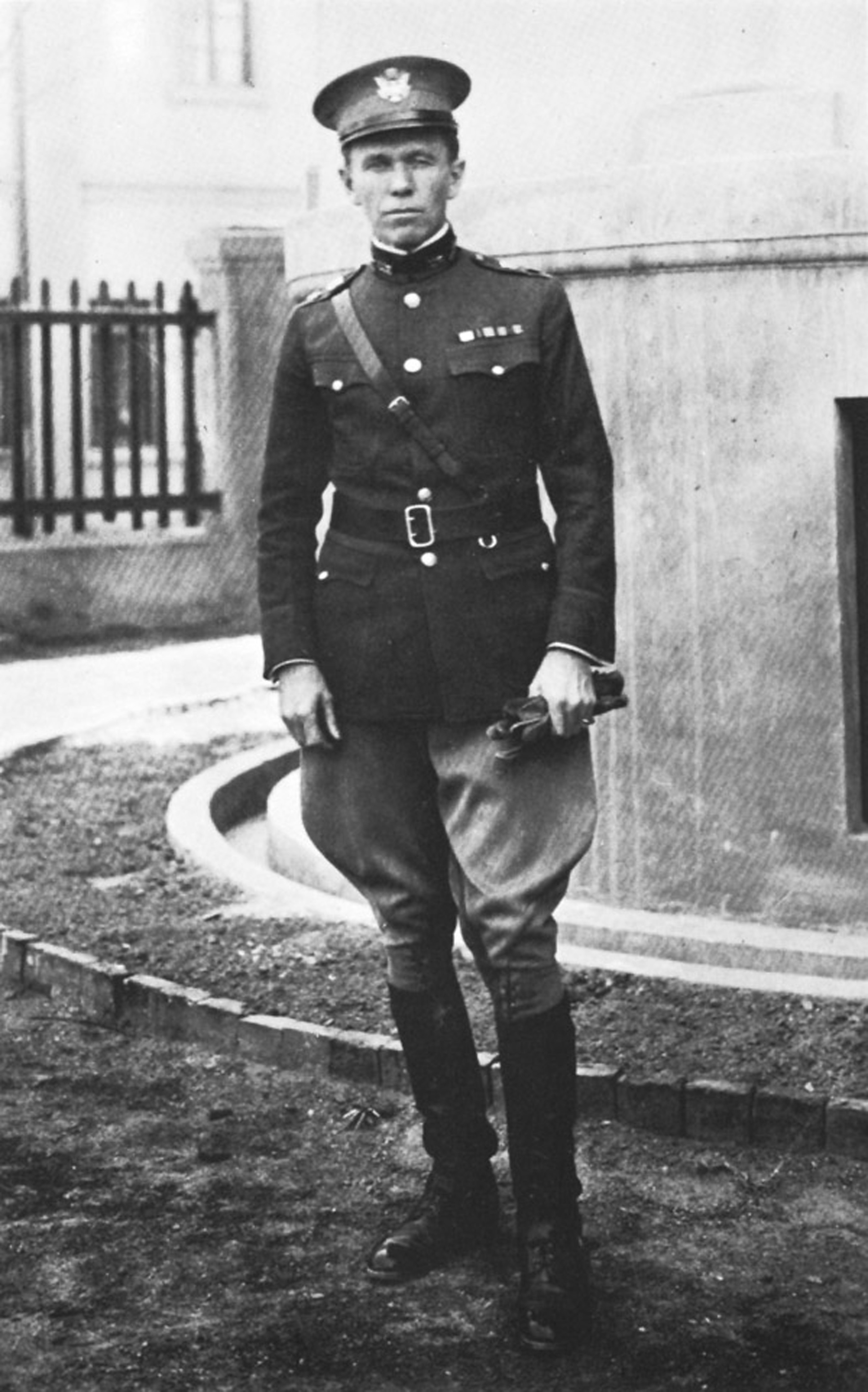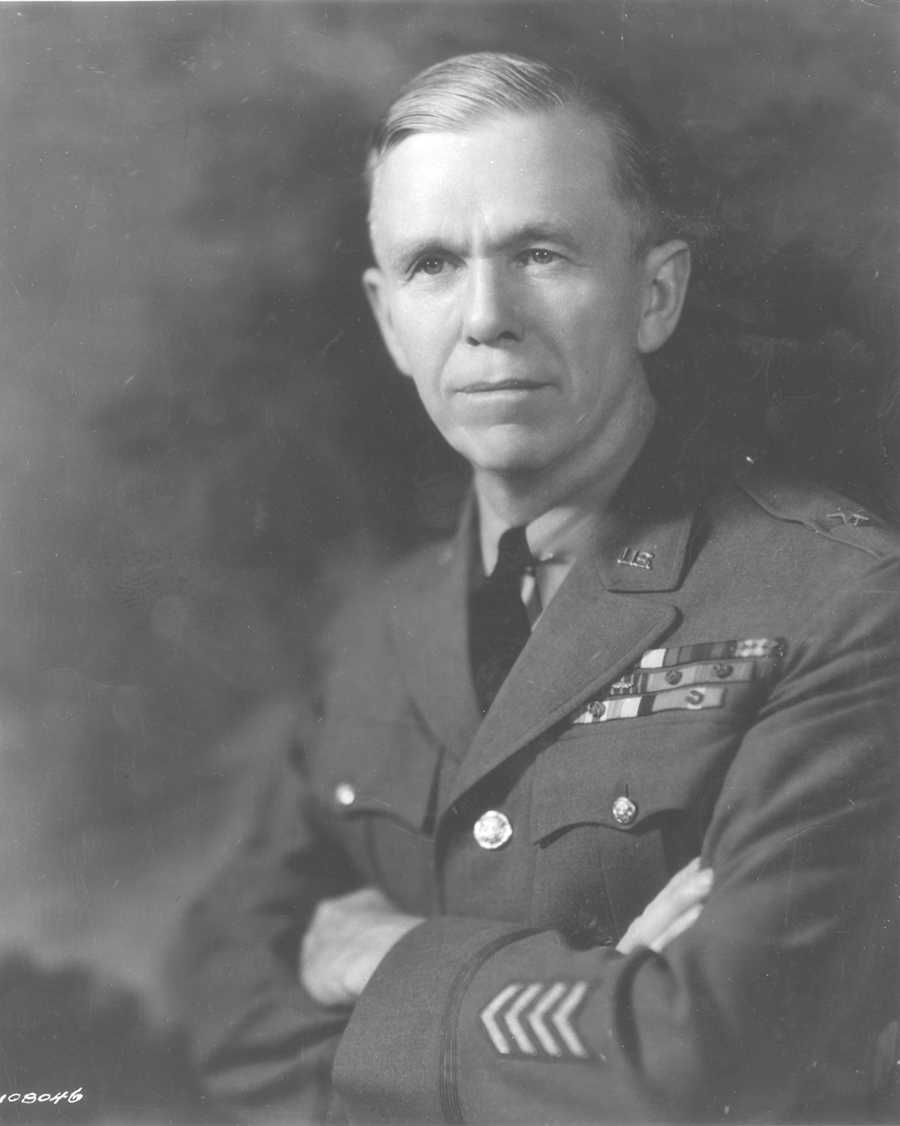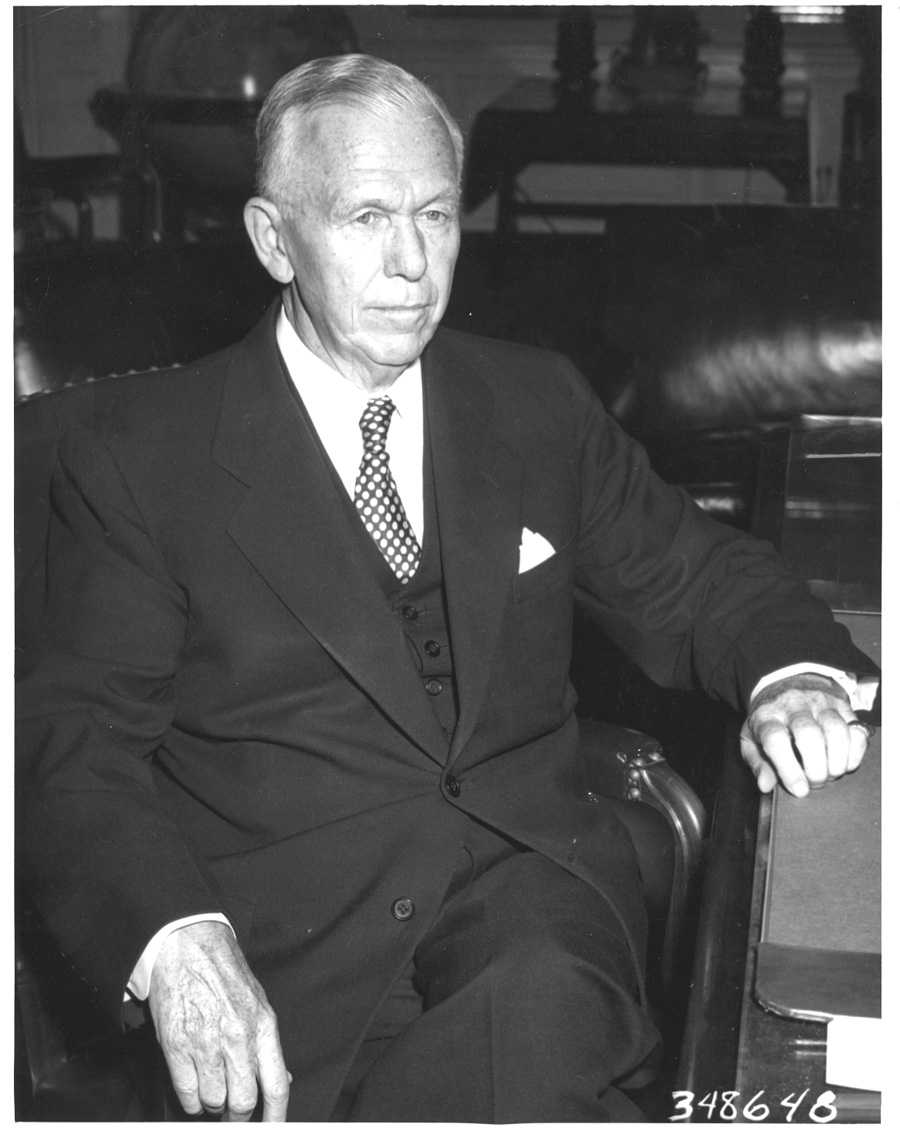The 100th anniversary of the end of World War I takes place on November 11th. This blog contains three passages regarding the Armistice. The first is an anecdote from Marshall’s book Memoirs of My Services in the World War, 1917-1918, in which Marshall describes an incident in the officers’ mess hall when speculating on the demands that the Allies should make of Germany in the terms of the Armistice agreement:
 “Colonel Forte, our French Attaché, and Major Geiger, the representative of the English Army, held the floor most of the time, discussing the distribution of the German colonies. It was amusing to listen, because it evidenced so clearly the habitual viewpoint of the English and French in the matter. We had no thought of colonies, but they thought of little else, and at one meal Colonel Forte told me the United States should take Syria. I replied that from the viewpoint of an Army officer, America was opposed to any colony that had a wet or a dry season, and an abnormal number of insects. On the spur of the moment, I added that Bermuda was the only possible colony we would consider. All of the Americans at the table were flabbergasted when Geiger took me seriously as to Bermuda. He quite apparently thought that here at last was what America was after in this war, aside from dollars and cents…”
“Colonel Forte, our French Attaché, and Major Geiger, the representative of the English Army, held the floor most of the time, discussing the distribution of the German colonies. It was amusing to listen, because it evidenced so clearly the habitual viewpoint of the English and French in the matter. We had no thought of colonies, but they thought of little else, and at one meal Colonel Forte told me the United States should take Syria. I replied that from the viewpoint of an Army officer, America was opposed to any colony that had a wet or a dry season, and an abnormal number of insects. On the spur of the moment, I added that Bermuda was the only possible colony we would consider. All of the Americans at the table were flabbergasted when Geiger took me seriously as to Bermuda. He quite apparently thought that here at last was what America was after in this war, aside from dollars and cents…”
Of course Marshall was greatly affected by his experiences during World War I. He became concerned about three major factors regarding American soldiers: preparedness, morale and casualties. He also saw the correlation between the Treaty of Versailles and the rise of the Nazi Party. As Germany strengthened in the 1930s, he urged Americans to pay attention. To mark the 20th anniversary of the Armistice, Marshall delivered a speech to the American Legion on November 6, 1938. Even before Marshall became Army Chief of Staff, he warned of America’s lack of preparedness, citing examples such as:

“I saw them (troops) on a series of terrible battlefields where they established an outstanding reputation in the AEF, and a world-wide reputation in Europe. Finer soldiers you could not have found, but the point is, at this moment, they were not soldiers; but our peculiar fortune in that war was, that our Allies protected us on the field of battle for a long year while we slowly got ready—for we landed in France on June 26, 1917, and it was not until September 12, 1918, that an American Army deployed in a battle. Prior to that time there were engagements in which smaller detachments of American troops were engaged. The First Division made the first American attack at Cantigny on May 28, 1918, and participated in the famous counterattack at Soissons, the turning point of the war, on July 18, 1918. Other divisions operated in the Marne Salient that summer. But, more than a year elapsed after our declaration of war before our first divisional unit engaged in battle, and seventeen months before an American Army appeared on the field.
“I emphasize these time elements because the implications of the past few weeks have indicated that war is a sudden and terrible business, with the accent on the sudden. Nothing that has recently been said or printed seemed to indicate that we would have a year in which to get ready. Now, what we are interested in, as our simple duty in the War Department, is the development of logical plans suitable to our national characteristics and adequate for our protection.”
On November 11, 1950, as Secretary of Defense, Marshall delivered remarks at the graveside of General John J. Pershing in which he gave a tribute to his mentor, discussed caring for overseas cemeteries through his post at the American Battle Monuments Commission, and the Korean War. (Memorial Day was not established as a national holiday until 1971, so Marshall also spoke of those who had died in wartime.)
 “Armistice Day this year has for us unusual significance. Earlier occasions were marked by special homage to those who gave their lives in the First World War, and later to the fallen in the recent world conflict. November eleventh this year we are also doing honor to four thousand more of our men who recently gave their lives in Korea, and today at this very moment other names are surely being added to this list of sacrifices in our behalf.
“Armistice Day this year has for us unusual significance. Earlier occasions were marked by special homage to those who gave their lives in the First World War, and later to the fallen in the recent world conflict. November eleventh this year we are also doing honor to four thousand more of our men who recently gave their lives in Korea, and today at this very moment other names are surely being added to this list of sacrifices in our behalf.
“Each of these casualties represents precious life, precious to the individual and precious to his family and friends. We can do nothing to restore life to those men, but we can keep faith with them, remembering and honoring their sacrifices and doing our very best to support the ideals they courageously represented. They will not be forgotten. Their Government will see that their last resting place is kept beautiful and peaceful, and a reminder to all peoples that we believe in the dignity of the individual and stand ready to make any sacrifice in the defense of his inalienable rights.”
Marshall never lost sight of the men and women who were willing to fight for their country, and on this Veteran’s Day we at the Marshall Foundation thank all who have served.
To learn more about the average soldier’s experience during World War I, please reference our Homer Simpson Collection, in which you may read his own compelling diary entry regarding the Armistice.
